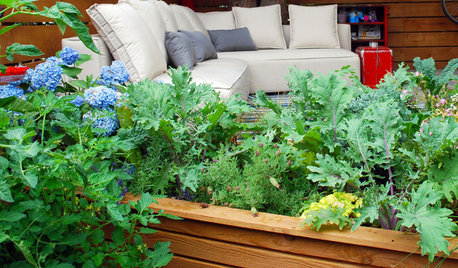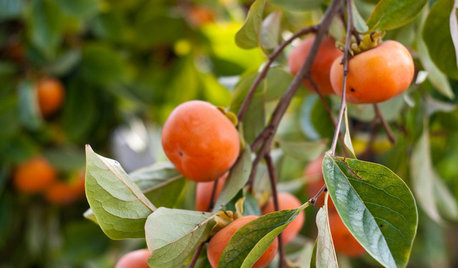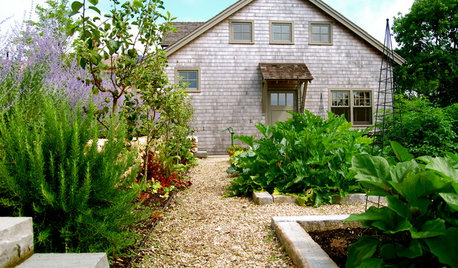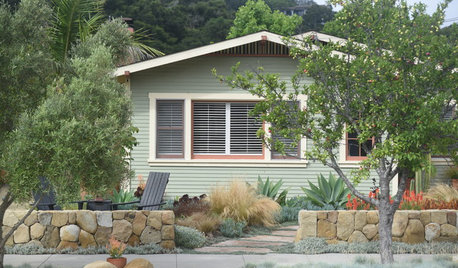Vermiculture vs. Composting..is there really an advantage?
Boukmn
10 years ago
Related Stories

GARDENING GUIDESGet on a Composting Kick (Hello, Free Fertilizer!)
Quit shelling out for pricey substitutes that aren’t even as good. Here’s how to give your soil the best while lightening your trash load
Full Story
GARDENING GUIDESStep Right Outside for Fresh Herbs and Vegetables
Decks and patios can be convenient spots for edibles, and sometimes they even offer advantages over backyard gardens
Full Story
DREAM SPACESHouzz Tour: Hugging the Rocky Cliffs in Big Sur
Cascading down a rugged site and generously encased in glass, this California home takes full advantage of its ocean views
Full Story
CALIFORNIA GARDENINGCalifornia Gardener's November Checklist
In a season of traditions, let's take advantage of California's familiar — as well as quirky — planting opportunities
Full Story
FALL GARDENING5 Ways to Put Fall Leaves to Work in Your Garden
Improve your soil and yard the organic way with a valuable garden booster that grows on trees
Full Story
EARTH DAYThe Case for Losing the Traditional Lawn
Work less, help the environment and foster connections by just saying no to typical turf
Full Story
GARDENING GUIDESThe Simple Secret to Gardening Success
Learn the kinds of soil and a DIY type test to make sure you’re putting the right plant in the right place
Full Story
DECORATING GUIDESSo Your Style Is: Green
Way beyond a hue on a paint chip, green means a healthy home with a unique style designed around sustainability
Full Story
LANDSCAPE DESIGNHow and What to Plant in Dry, Sunny Spots
Save water and improve your site’s look with these design tips and help from a pro
Full Story
GARDENING GUIDES13 Risks to Take for True Garden Rewards
Go ahead, be a rebel. Breaking rules in the garden can lead to more happiness, creativity and connection with the earth
Full StorySponsored
Custom Craftsmanship & Construction Solutions in Franklin County
More Discussions






chuckiebtoo
equinoxequinox
Related Professionals
Montgomeryville Landscape Architects & Landscape Designers · Allentown Landscape Contractors · Arden-Arcade Landscape Contractors · El Segundo Landscape Contractors · Golden Landscape Contractors · Middletown Landscape Contractors · North Aurora Landscape Contractors · Burlington General Contractors · Arlington General Contractors · Catonsville General Contractors · Country Club Hills General Contractors · Decatur General Contractors · Jackson General Contractors · Mountain View General Contractors · Westchester General Contractorsarmoured
klem1
11otis
greenthumbzdude
Priswell
BoukmnOriginal Author
sbryce_gw
BoukmnOriginal Author